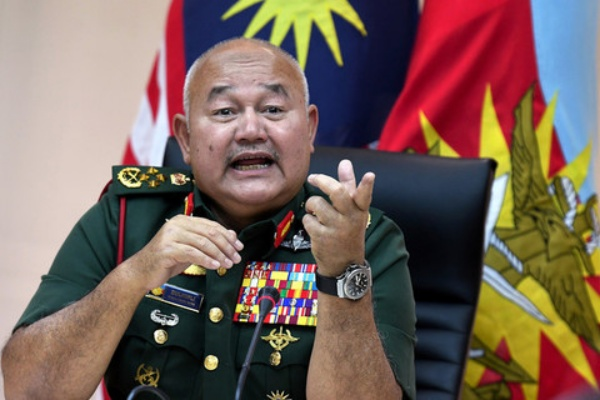KUALA LUMPUR, Feb 22 — The Peace Dialogue Panel of the Royal Thai Government (PEDP/RT) and the Barisan Revolusi Nasional Melayu Patani (BRN) have agreed to develop a Joint Comprehensive Plan Towards Peace (JCPP) as a road map for 2023 – 2024, in seeking a solution towards ending the armed conflict in south Thailand.
Chief facilitator Tan Sri Zulkifli Zainal Abidin said the positive outcome was achieved during the two-day 6th Official Meeting of the Southern Thailand Peace Dialogue Process between both parties held here, starting Tuesday.
In a press conference after the meeting ended on Wednesday, he said the JCPP will establish a roadmap that would show there is hope for peace for the Patani community in the Southern Border Provinces of Thailand and that there is an opportunity to end the conflict.
“In order to sustain the momentum, the two parties will continue with closed negotiations on the action plan and will work out the details of the implementation of the JCPP in a series of technical meetings that will be held in the near future,” Zulkifli said.
Elaborating further, he said the agreement to establish the JCPP will leapfrog whatever that had been discussed in previous dialogues.
“Because of that decision, we are able to really talk terms of what should we be doing in the course of making sure that at the end of the day, we are able to end the conflict,” Zulkifli said.
The former chief of defence force said Malaysia is always committed to facilitating the Thai government and Patani community in the southern border provinces of Thailand to solve the conflict and hoped that a fair, comprehensive and lasting solution could be achieved.
Asked about Malaysian Prime Minister Datuk Seri Anwar Ibrahim’s statement on trust-building to resolve the conflict, Zulkifli said trust deficit is one of the biggest challenges in conflict resolution, and the ability of both parties to come to this agreement indicated that the trust deficit is narrowing down.
“It shows that both parties have trust in each other and that is the key to the success of the dialogue,” he added.
Anwar, during his recent visit to Thailand, has, among others, stated that Malaysia will not allow the use of violence to resolve the conflict in southern Thailand, and that he also wants the problem of ‘trust deficit’ to be addressed.
On the upcoming Thai general election in May, Zulkifli said from the commitment shown by both parties, he is confident that stability could be achieved during the election period.
Zulkifli was appointed as the new Malaysian chief facilitator for the peace dialogue process in southern Thailand effective Jan 1, 2023, replacing former Inspector General of Police Tan Sri Abdul Rahim Mohd Noor.
Talks between the government and rebels that began in 2013 to bring peace stalled following a military coup in Thailand a year later. Negotiations subsequently continued without the main parties, including BRN.
However, consultations between the Thai government and the BRN resumed in 2019 with concrete and significant progress being made, raising hopes for an end to violence in Thailand’s southern region.
Statistics by independent monitoring group Deep South Watch indicate an unrelenting cycle of violence in southern Thailand, starting in 2004 in Pattani, Yala, Narathiwat and Songkhla, which has claimed more than 7,000 lives so far.
— Bernama





